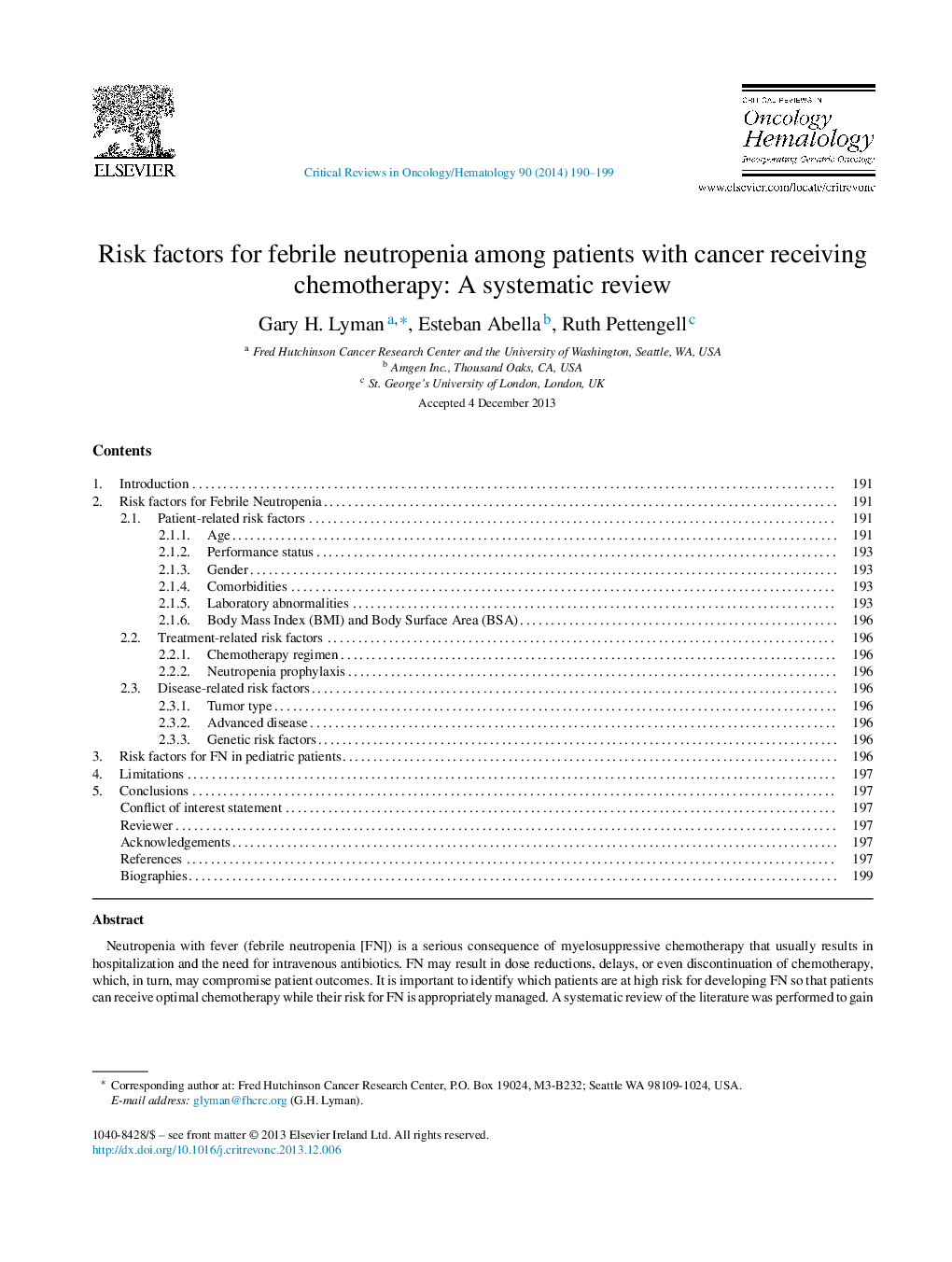| Article ID | Journal | Published Year | Pages | File Type |
|---|---|---|---|---|
| 3328753 | Critical Reviews in Oncology/Hematology | 2014 | 10 Pages |
Neutropenia with fever (febrile neutropenia [FN]) is a serious consequence of myelosuppressive chemotherapy that usually results in hospitalization and the need for intravenous antibiotics. FN may result in dose reductions, delays, or even discontinuation of chemotherapy, which, in turn, may compromise patient outcomes. It is important to identify which patients are at high risk for developing FN so that patients can receive optimal chemotherapy while their risk for FN is appropriately managed. A systematic review of the literature was performed to gain a comprehensive and updated understanding of FN risk factors. Older age, poor performance status, advanced disease, certain comorbidities, low baseline blood cell counts, low body surface area/body mass index, treatment with myelosuppressive chemotherapies, and specific genetic polymorphisms correlated with the risk of developing FN. Albeit many studies have analyzed FN risk factors, there are several limitations, including the retrospective nature and small sample sizes of most studies.
